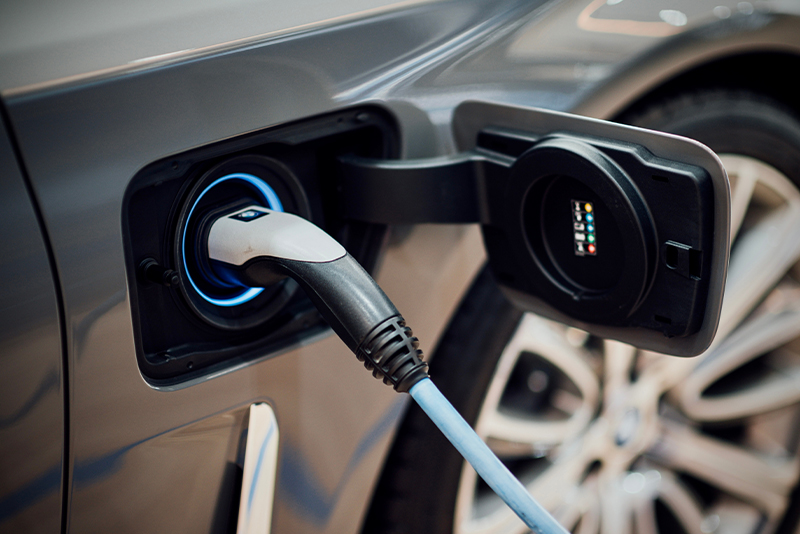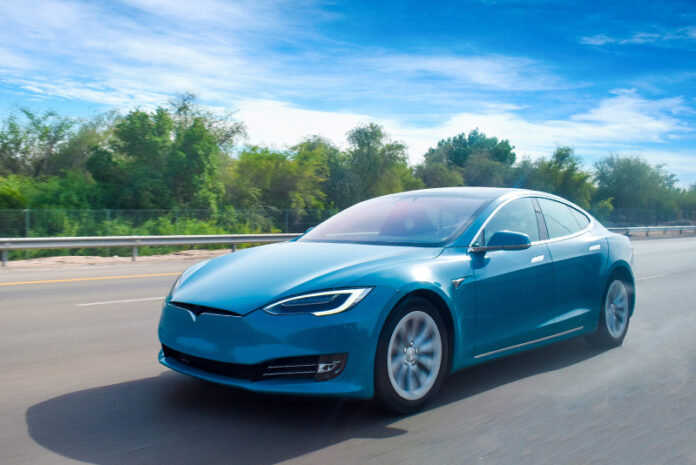The allure of the electric vehicle is growing
Electric Vehicles (EVs) are fun to drive, require little maintenance and produce about half the emissions of an Internal Combustion Engine (ICE) Vehicle – a major contributor to climate change. Singapore is driving towards wider EV adoption to meet its target of phasing out all ICE vehicles and have all vehicles run on cleaner energy by 2040. The National Electric Vehicle Centre (NEVC) at the Land Transport Authority (LTA) has been formed to coordinate the Government’s efforts in this space.
For now, motorists still have the choice between an EV and a petrol-driven vehicle but many carmakers have announced plans to phase out the production of petrol-powered models. For instance, General Motors plans to sell only electric cars by 2035.
Already, there are more EVs to choose from. In 2021, there were 18 car brands offering EVs – up from 12 from the previous year. With greater choice and awareness, new electric car sales rose to 1,740 units in 2021 – a 17-fold jump from 100 units in 2020, according to The Straits Times on 28 Feb, 2022.
One big concern about going electric is the higher initial cost. However that barrier is falling fast and governments around the world – including Singapore’s – hope to speed things along with incentives. In 2021, about $30 million in rebates were given out to encourage car and taxi owners to switch to EVs under the Electric Vehicle Early Adoption Incentive scheme, which was announced during Budget 2020.
The scheme, which will be available until Dec 31, 2023, gives buyers of fully electric cars and taxis a rebate of up to 45% on their additional registration fees, capped at $20,000. This applies to both individual and fleet vehicle owners, such as taxi and car rental companies. The rebate was introduced to lower the upfront cost of an electric car, which cost about 78% more than an equivalent internal combustion engine car in 2020.

Here are the top advantages of EVs:
Better for the environment
EVs generate zero exhaust emissions as they run on electrically powered engines. They are even better than hybrid cars as hybrids running on petrol do produce emissions. You’ll be contributing to a healthy and green climate by converting to an EV.
Costs less to drive and maintain
Petrol prices look to continue to rise. So do the costs of electricity but not as much. As such, EVs offer significant long-term savings. A US study found that the average EV owner spends 60% less to power the vehicle and half as much on repairs and maintenance when compared with the average owner of a conventional car.
Less maintenance required
Another advantage of an EV is that there are fewer components and requires less maintenance. There is no starter motor, no clutch and radiator or exhaust system. There is less that can break down. While battery replacements might be required, most manufacturers offer warranties of up to 10 years.
More fun to drive
Among automobiles, EVs are the simplest and the quietest to drive. Acceleration is quick and smooth since there is no gear to engage. Therefore, you can operate an EV with just the accelerator pedal, brake pedal and steering wheel. Thanks to the weight and location of the battery, an EV has a low centre of gravity making it easier to handle and less likely to roll.
You also don’t have to worry running out of fuel. Recharging is simple and it will become more convenient. There are currently more than 2,000 EV charging points with the government planning to install 60,000 charging points by 2030.
Electric vehicles will only get more affordable
EVs are growing in popularity. It is nearly three times as cost-efficient as cars with an internal combustion engine, according to studies. With popularity come economies of scale.
A second-hand market for EVs will also emerge.
In addition, advancements in battery technology have seen battery prices fall by almost ten times in the last decade – from US$1,000/kWh in 2010 to around US$132/kWh today. While EV prices have not fallen proportionally, EVs are expected to reach upfront cost parity with ICE vehicles when battery prices further decrease to around US$100/kWh. This is expected by around 2025.
The bottom line
However, there is no escaping the fact that cars are a major source of carbon emissions ejected into the natural atmosphere, leaving us vulnerable to things like pollution and greenhouse gases. In order to positively help the environment we live in, an EV is a great step forward. As a car has always been a statement about its owner, driving an EV also says that you are a responsible citizen of the world and you care for the environment.
CLIMATE CHANGE: PLANS TO PROMOTE CLEANER VEHICLES
VIDEO CONFERENCE: 24 March 2022, 7pm – 8pm
Learn more about NEVC’s priorities and initiatives and how you can do your part from Mr Mark Tan. He heads the NEVC and is also Director, Futures and Transformation at the Ministry of Transport.
Registration closes on 17 March 2022. To register, click here
For enquiries, please contact Christopher Lee







